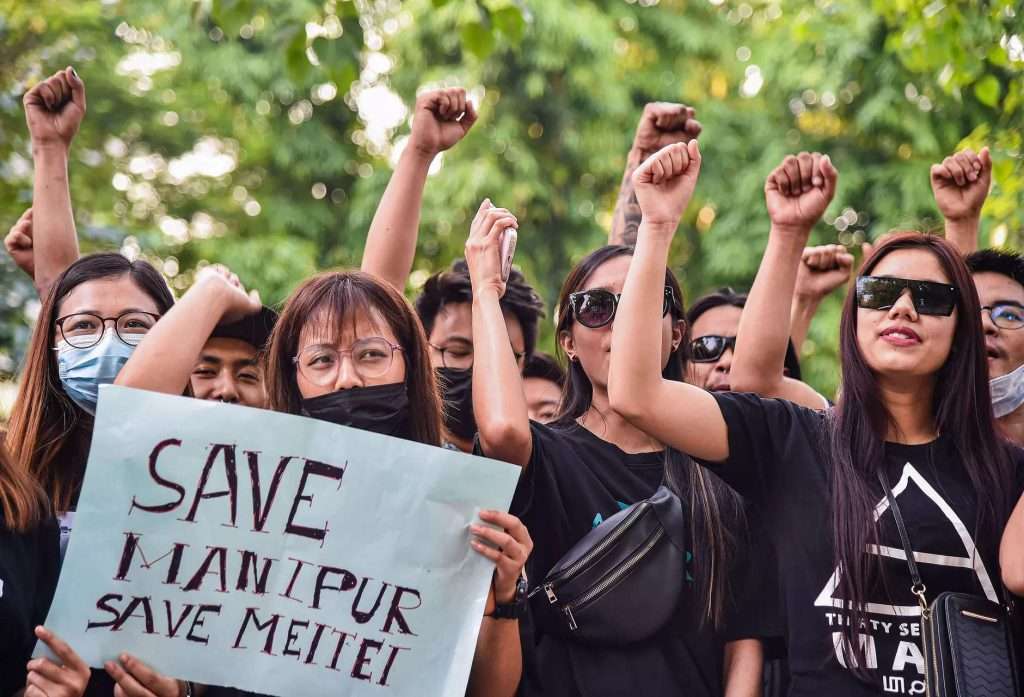The Ongoing dispute in Manipur: A breaking scenario in 2023

Theme: The ongoing dispute in Manipur is a result of ethnic tensions between the Meitei and Kuki-Hmar-Zomi people in Manipur. The Meitei people, who are bulk in the Imphal Valley, had been annoying a Scheduled Tribe status below the Indian Constitution, which might deliver them privileges corresponding to the tribal groups. This has led to protests by the tribal groups who are in opposition to the Meitei call. This article will lets us know the principal causes and outcomes of the inner dispute in Manipur. What are the main causes of the ongoing conflict in Manipur? The ongoing dispute in Manipur is a complex problem that has been brewing for decades. Here are a number of the principal reasons for the conflict, consistent with the search results: Long-standing inter-network war: The violence in Manipur is by and large because of inner disturbance induced by lengthy unresolved inter-network battles. The nation is domestic to an ethnically numerous group of Sino-Tibetan groups, every with its specific language, way of life, and religion. The Meitei, Kuki, Naga, and Zo tribes are a number of the fundamental groups in Manipur. The demonstrations escalated into violent confrontations between Naga and Kuki organizations and the Meitei, inflicting Indian protection forces to installation The massive influx of illegal immigrants: The Manipuri (Meitei) Association, Navi Mumbai (MMANM) has expressed deep concern over the ongoing war in Manipur which “threatens the peace, protection and socio-cultural material of the country. The root purpose of this warfare lies within the massive influx of both armed and unarmed illegal immigrants from the bordering USA that led to the destabilization of Manipur’s demographic profile, assets, and protected regions/ land. The imbalance in land ownership and shopping rights, at the side of the trafficking of medication and arms via porous worldwide boundaries, poses a considerable threat to the state’s and finally kingdom’s security. Marginalization of communities: Tribal businesses are protesting the prospect of Manipur’s majority Meitei network being identified as a “Scheduled Tribe”. Constitutionally identified, this authentic designation offers positive protections to tribes and groups. “It is an affirmative movement to ensure marginalized groups are represented and gives them reservations and quotas in instructional institutions and authorities jobs,” said Arunabh Saikia, a journalist who has protected the location. The Meiteis declare they’re marginalized compared to the alternative mainstream communities. Insurgencies: Manipur has had a long record of civil conflict because of cutting-edge India’s introduction. The kingdom has grappled with insurgencies, violence, and marginalization for decades. The violence has traditionally been ethnic, and even as there may be a few overlaps with faith, it has usually remained an ethnic conflict with some instances of inter-tribe violence as well. What is the effect of the war on the people of Manipur? The ongoing warfare in Manipur has had a huge effect on the people of the country. Here are some of the approaches in which warfare has affected humans, consistent with the hunt consequences: 1. Loss of existence and displacement: The violence in Manipur has resulted in the loss of many lives, with a minimum of 75 deaths stated thus far. The burning of houses, non-secular websites, and other houses have also been stated. More than 35,000 humans were displaced and are presently residing in treatment camps. The scenario remains hostile, and the huge variety of displaced human beings may additionally preserve and rise because the prevention keeps. 2. Fear and lack of confidence: The ongoing battle has created a sense of fear and absence of confidence in most of the people of Manipur. The violence has been tremendous, and those are afraid to go away from their houses or flow about their day-by-day lives. The state of affairs is especially annoying in areas wherein there may be high attention to special ethnic companies. 3. Economic effect: The war has moreover had an enormous economic impact on the human beings of Manipur. The burning of houses and agencies has left many humans without a supply of income. The displacement of human beings has additionally disrupted monetary interest in the united states. What is the position of civil society businesses in addressing the conflict in Manipur? What is the position of civil society businesses in addressing the conflict in Manipur? Civil society organizations can play a vital role in addressing the continuing conflict in Manipur. Here are a number of the roles that civil society corporations can play, consistent with the quest results: 1. Promoting conflict resolution: Civil society corporations can sell struggle decisions by bringing different groups collectively and fostering expertise among them. Joint protests via Meitei, Kuki, and Muslim civil society organizations in Manipur have adverse decisions that could strengthen the struggle. 2. Representing the civil society of Manipur: Civil society businesses such as AMSU, AMUCO, and UCM claim to symbolize the civil society of Manipur. These organizations can play a position in advocating for the wishes and worries of the people of Manipur and selling peace and stability inside the kingdom. 3. Showing extra activism: Human rights and civil society companies were active inside the region and featured proved extra activism in achieving one-of-a-kind communities. These agencies can play a role in promoting communication and understanding between specific communities and advocating for peaceful solutions to warfare. 4. Negotiating throughout ethnic divides: Civil society groups can negotiate across ethnic divides that otherwise harden and perpetuate warfare. These companies can play a role in bringing special communities together and finding commonplace ground for a non-violent resolution of the war. 5. Raising attention about the root reasons for the warfare: Civil society organizations can raise consciousness about the basic causes of the battle, along with the huge inflow of illegal immigrants from the bordering country. By elevating attention to those problems, civil society groups can help to address the root causes of the battle and save you similarly destabilization of Manipur’s demographic profile, assets, and guarded regions/ land. Conclusion: In the end, the continuing dispute in Manipur is a complicated difficulty that has been
